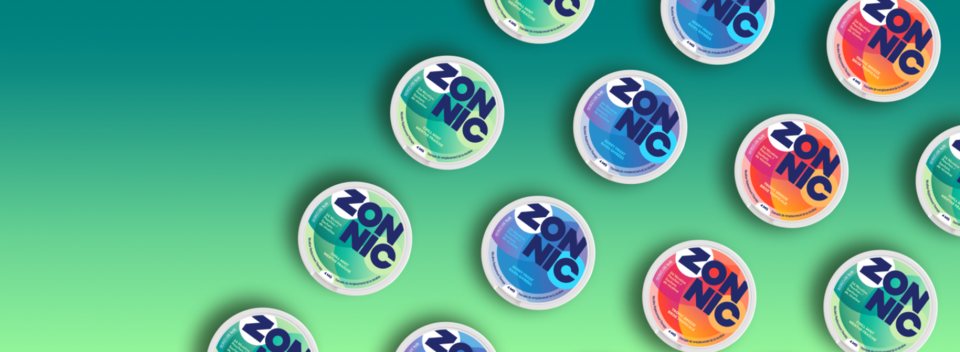On July 18, Health Canada approved the sale of Zonnic nicotine pouches as a replacement therapy under the Natural Health Product Regulations. As of October 12, Zonnic nicotine pouches were made available as a tasty over-the-counter supplement to cigarettes.
Labeled as a Nicotine Replacement Therapy (NRT), one package of Zonnic contains 24 pouches which contain four milligrams of nicotine in each pouch. A singular pouch is tucked under the lip. Zonnic advises that the pouch shouldn’t be chewed or swallowed, but is disposed of after 60 minutes.
Moreover, Zonnic advises that a person should not exceed 15 pouches a day.
The issue health organizations such as the Canadian Cancer Society and the Canadian Lung Association are pointing out is a misstep that Health Canada took in allowing Nicotine products to be sold and marketed where they are readily accessible to small children.
Essentially, under Health Canada’s Natural Health Product Regulations products containing nicotine such as gum and lozenges are exempt from age restriction because they contain 4 mg or less of nicotine.
Health Canada Spokesperson Charlaine Sleiman explained “nicotine replacement therapy like gums, lozenges, spray and patches are less harmful than smoking only for persons who smoke or persons who are looking to stop smoking. It should be noted that the approved flavours for the nicotine pouches are similar to the ones approved for other Natural Health Products such as gums and lozenges.”
“These products are not subject to the Tobacco and Vaping Products Act (TVPA) as they do not contain tobacco and do not meet the Act’s definition of a vaping product,” Sleiman added.
Because of this distinction between what is considered a natural health product and Tobacco and Vaping Products, Tobacco companies manufacture gums, lozenges, and candies containing nicotine and can market their product to anyone.
“This has been kind of just the way of the road in tobacco control over the last couple decades really where the tobacco industry has worked very hard to shift its image from this company that is the vector of all of these different kinds of diseases and that manipulates its consumers to sell a product that if you use it directly can kill you,” said Catherine Kiewning, Health Educator and Youth Engagement Coordination with the Northwestern Health Unit in Dryden.
“So, they're trying to move away from that image to a more socially responsible one which obviously in the world of tobacco and vaping control sends red flags to a lot of us because we know that they're using the exact same playbook as they did back in the forties, fifties and sixties, trying to entice generations of young people to become addicted to nicotine. This is a huge, huge issue for us in the tobacco and vaping control world,” Kiewning continued.
Health organizations are urging the Federal government to reclassify nicotine pouches as prescription products under the Natural Health Product Regulations.
Imperial Tobacco stands behind Zonnic’s flavoured nicotine product as a replacement therapy by stating that they “would support regulations that limit the sale NRT category to adults 18 years old and over.”
"As for all of our products, our position has been consistent and strong on this point. Nicotine products are for adult consumers only. We believe that if we truly want to reduce the health risks of tobacco products, we need to introduce products that will be appealing to adult smokers and have them available where people traditionally buy their cigarettes. Health groups should be on our side with this rather than putting up roadblocks," said Eric Gagnon, Vice President of Legal and External Affairs at Imperial Tobacco.
However, Kiewning acknowledges that because children have a hard time discerning between favoured nicotine products and candy, the NWHU is seeing an increase in call volume to poison control because young children are ingesting large amounts of nicotine.
“You can experience something called nicotine toxicity or nicotine poisoning, which is essentially when your body has taken in too much nicotine. This can happen to people who are quitting smoking, who are using the patch, but they're using a high dose of the patch,” Kiewning said.
Kiewning stated that the four milligrams of nicotine in each pouch is equal to having the same amount of nicotine as smoking three to four cigarettes. A single cigarette contains a little over one milligram of nicotine. This would mean that a person using Zonnic as an NRT is getting four times the amount of nicotine on would get if they were to smoke a cigarette.
Kiewning points out that nicotine is a stimulant that affects the “neurotransmitter dopamine, which is responsible for reward and pleasure, which is this kind of self-fulfilling addiction that it creates for itself.”
In other words, the addiction strengthens as more nicotine is added to a person's body.
Although Zonnic nicotine pouches are tobacco-free removing the person from the cancer-causing carcinogenic chemical additives in a cigarette, a dose of nicotine still has lasting effects on young people's brains.
“We're seeing that it's affecting memory and concentration, especially with young children,” said Kiewning.
Additional effects, which are symptoms of nicotine toxicity, are dizziness, shakiness, headaches, anxiety, nausea, and difficulty sleeping.
“We work hard in public health to make sure that people understand that tobacco industries aren't these happy-go-lucky companies that care about their customers that want to do good in the world. They for the last century have colonized this sacred medicine from indigenous people, have monetized it and have been the ones to benefit from it,” said Kiewning.
